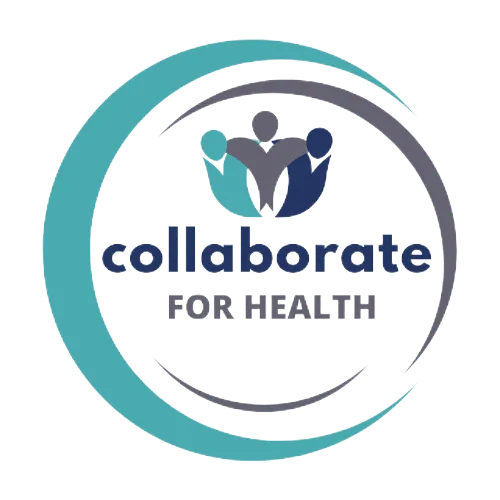BLOG
Welcome to Collaborate for Health, where we champion the power of collaboration to transform healthcare. Explore our collection of insightful articles and blogs, crafted to illuminate the benefits of teamwork in healthcare. From enhancing patient outcomes to streamlining administrative processes, our content is rich with valuable insights. Dive into a wealth of knowledge designed to inspire and inform. Take a moment to explore our website and unlock the potential of collaboration for a healthier future. Read the latest articles covering a variety of topics and perspectives on interprofessional education, interprofessional collaboration, patient advocacy, teamwork and collaboration skills. We are BETTER TOGETHER!
ADVANCING INTERPROFESSIONAL COLLABORATIVE PRACTICE
Want to contribute? Have questions or comments about article topics or content?
Please contact us via email.

Smart Choices for Your Health: Understanding Evidence-Based Practice
Ever Heard of Evidence-Based Practice?
If you're not a health provider or health professional, you might not know about evidence-based practice (EBP). But guess what? It's something important for you to understand, and here's why.
Your Health Team's Secret Weapon: Evidence-Based Practice
Health providers learn to use the best evidence-based practice (EBP) to take care of you. EBP is like a mix of the best research, your provider's experience, and what you prefer.
Tech Magic: More Information for You
Thanks to technology, you can read a lot about your symptoms or health. It's not just from your provider. It's from many places like non-profit organizations, hospitals, and academic health centers where the future healthcare workforce is being trained. But here's the trick: don't stick to one source. Read from different places, not just social media. Everyone has something to say, but you want the whole picture.
Your Provider's Skills: Experience Matters
EBP isn't just about research studies. It's also about your provider's knowledge. Imagine this: you pick a treatment, and the research says no soreness for 48 hours; but your provider, from stories they've heard, knows it might last 2 days. That's key info for you to plan ahead and maybe get some help.
Your Say Matters: Pick What Works for You
Guess what? You have a say in your care. Your preferences are part of EBP. Sometimes there are 2 treatments, one with faster results but the other fits your schedule and costs less. You get to decide what's best for you.
Your Health, Your Choices: Be the Leader
Evidence-based practice works with patient-centered care. Your choices and what you want come from learning, making you a big part of decision-making. So, when you talk to your health team, remember: you're the captain of your team.
For more information about patient-centered care, check out www.collaborateforhealth.com.
Your health adventure starts with you!
ADVANCING INTERPROFESSIONAL
COLLABORATIVE PRACTICE
Want to contribute to sharing information? Have questions or comments about article topics or content?
Please contact us via email.

Transforming Healthcare Teams:
Building a Collaborative-Practice Ready Workforce
written by Tina Patel Gunaldo, PhD, DPT, MHS
In the ever-evolving landscape of healthcare, the traditional solo approach to education is fading away, making room for a more dynamic and collaborative future. Many health professional programs, a total of twenty-five, now mandate the integration of Interprofessional Education (IPE) into coursework, signaling a shift towards a workforce that is not only skilled in their respective fields but also adept at collaborative practice.
The World Health Organization (WHO) outlines three fundamental principles associated with IPE that serve as the foundation for preparing a "collaborative practice-ready" health workforce. This entails students from various professions learning not just from their coursework but from each other, fostering effective collaboration to enhance health outcomes. This approach becomes a crucial step in responding to local health needs and producing health workers competent and ready for interprofessional teamwork.
While integrating IPE into an already demanding curriculum presents challenges, the promise of collaborative practice cannot be overstated. The benefits extend beyond improved health outcomes to positively impact health professional job satisfaction, reduce burnout, enhance the patient experience, lower long-term health costs, and contribute to achieving the Quintuple Aim.
The healthcare industry has recognized the importance of teamwork in improving both individual health outcomes and population health measures. The National Academy of Sciences, back in 2003, urged the educational system to prepare health professionals for collaborative work, a call that gained further momentum with the support of the Centers for Medicare and Medicaid Services for collaborative models such as Accountable Care Organizations and Community Health Centers/Federally Qualified Health Centers. In 2011, the Interprofessional Education Collaborative Panel was established, providing guidance on behavioral expectations associated with interprofessional collaborative practice.
The realization that IPE is a lifelong learning topic, akin to ethics, cultural competence, and clinical skills, underscores the need for clinical and community-practice environments to offer ongoing IPE opportunities for providers. Countries like the United Kingdom, Australia, and Canada lead by example, demonstrating their commitment to interprofessional collaborative practices by employing personnel within clinical environments specialized in this area of practice. Embrace the transformative power of collaborative practice and explore how it can revolutionize the way healthcare teams function and deliver care for a brighter, healthier future.

2023-2024 Collaborate for Health. All Rights Reserved
